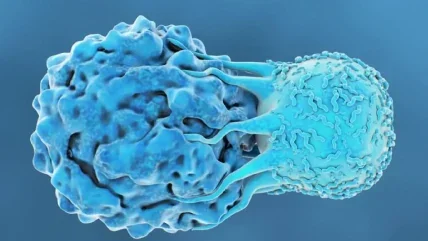
Merck, also known as MSD outside the US and Canada, has entered research collaboration with Epitopea to identify Cryptigen tumour-specific antigens (TSAs) in an undisclosed solid tumour.
Under the terms of the agreement, Epitopea will use its in-house CryptoMap platform to identify and provide novel, immunogenic Cryptigen TSAs for a prespecified tumour type.
MSD will obtain the exclusive rights to develop and commercialise the cancer therapeutics derived from the collaboration.
In exchange, Epitopea will receive an undisclosed upfront payment and is eligible for milestone payments with the potential to total up to $300m per product.
Merck Research Laboratories’ discovery, preclinical development and translational medicine senior vice president George Addona said: “Despite the remarkable progress made in cancer treatment over the past decade, more therapeutic options are needed.
“We continue to explore new ways to build upon our strong foundation in immuno-oncology and look forward to collaborating with the Epitopea team.”
Epitopea is a biotechnology company developing advanced RNA-based immunotherapies by targeting a new class of tumour-specific antigens, known as Cryptigen TSAs.
Cryptigen TSAs are shared, non-mutated, aberrantly expressed antigens that are derived from junk DNA, which were thought to be non-coding regions of the genome.
Epitopea has created a library of novel Cryptigen TSAs, discovered using its CryptoMap platform, which leverages immunopeptidomics, genomics, and a bioinformatics pipeline.
The hidden Cryptigen TSAs were first discovered through research conducted at the Université de Montréal Institute for Research in Immunology and Cancer.
Epitopea CEO Alan Rigby said: “Epitopea has been at the forefront of identifying Cryptigen TSAs, whose intratumor shared nature across patients has made them ideal targets for the development of off-the-shelf immunotherapies.
“We believe that this strategic collaborative relationship with MSD, a leader in immunotherapy therapeutic development, provides us with an additional opportunity to validate the potential impact of these differentiated tumour-specific antigens.
“We are thrilled to collaborate with MSD as our teams collectively look to impact the lives of patients with cancer by helping to improve outcomes.”






